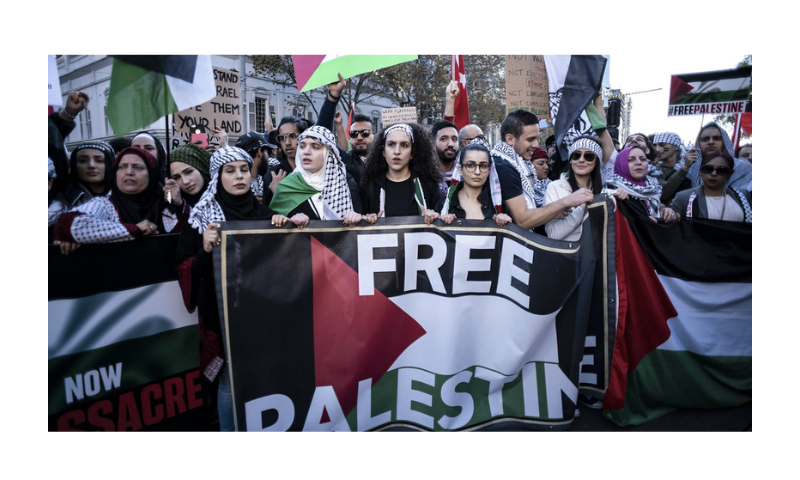Noah Rothman
National Review, Feb. 27, 2024
“What is this sort of advocacy meant to achieve other than to convince other naïve, blinkered radicals to commit similar acts of violence — acts that may not be limited to self-harm?”
We love death like our enemies love life.” That chilling mantra, expressed a decade ago by Hamas leader Ismail Haniyeh, has since become the terrorist outfit’s unofficial motto. “The Israelis are known to love life. We, on the other hand, sacrifice ourselves,” Hamas official Ali Baraka told a Russian interviewer less than a week after the October 7 massacre. “The thing any Palestinian desires the most is to be martyred for the sake of Allah.”
Neither Haniyeh nor Baraka, who respectively reside in Qatar and Lebanon, were speaking for themselves. Both are sufficiently removed from the war to which they’ve consigned Gaza’s people that they have little reason to anticipate their own glorious martyrdom. They are, however, happy to see their charges massacred in furtherance of the death cult Hamas has erected around itself. That cult extends well beyond the borders of the Gaza Strip, as the self-immolation of Aaron Bushnell sadly illustrates.
Bushnell announced himself as an active-duty U.S. airman when he approached the gates of the Israeli embassy in Washington, D.C., on Sunday. There, he declared his opposition to “genocide,” dowsed himself in a flammable liquid, and set himself alight. He died of his wounds shortly thereafter. Bushnell seems to have captured the hearts of Americans who are predisposed to share Bushnell’s outlook on Israel’s defensive war against Hamas and the Biden administration’s support for it. Their praise for his act of violence is evidence of both the depravity cultivated by Hamas’s obsessive bloodlust and an unspoken but apparently widespread desire to see more violence follow it.
… [To read the full article, click here]


